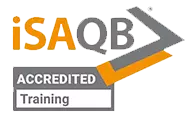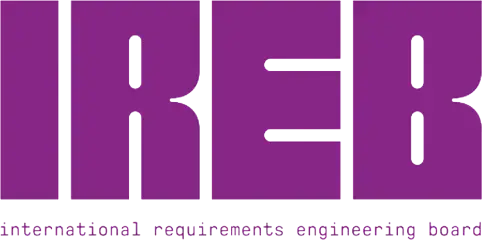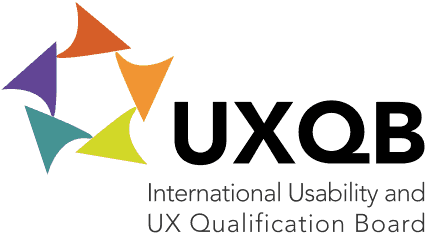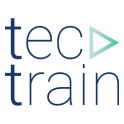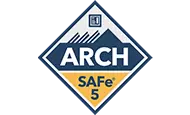"The world is becoming increasingly complex and fast-paced, particularly due to digitization."
You, as a computer scientist, probably have a good understanding of the nuances of digitization and know how deep the "IT rabbit hole" goes. This presents both employers and employees with a challenge in the job market.
Employers often lack an overview of the skills that a candidate possesses. Paper is patient, as the saying goes. On the other hand, as a candidate, you want to show the recruiter unmistakably that you have a specific skill.
So, how can we solve this problem? With IT training.
IT certifications or IT training with subsequent certification are a clear signal that you have mastered the required skill. In the job application process, you will be ahead of your competitors with such a certification. This certificate can be your ace in the hole.
At tectrain, we specialize in these IT certifications, and in this article, we present the seven most important accreditations that you can take with us.
iSAQB Training Courses
The International Software Architecture Qualification Board e.V. (iSAQB®) is an organization of IT experts who aim to improve the education and training of programmers through technological standards and certifications.
The certifications offered by the organization are called Certified Professional for Software Architecture (CPSA).
Currently, there are two levels of the CPSA:
- CPSA-F (Foundation)
- CPSA-A (Advanced)
In the long term, an expert level is also planned. Of these categories of accreditations, we recommend four to you.
1- iSAQB® Foundation Level
As the name suggests, this IT course covers the fundamentals of software architecture. The main focus is on the systematic approach to architectural design and architectural assessment.
We will also show you how you can work as a developer in a team and get involved in your role. The exchange and coordination with those involved in the project is the be-all and end-all for every project. At tectrain, hard skills meet soft skills so that you can master all challenges in the real world.
The 3-day IT training is designed to be interactive and practical. Even before the actual training begins, you will receive guided course preparation from us so that you do not lack any relevant information during the training itself and you can concentrate entirely on the situations in the IT training.
During the three days, we prepare you optimally for the final multiple-choice test.
iSAQB® Advanced Level
If you want to delve deeper into the subject, we can recommend an iSAQB® Advanced course.
In the more extensive training measures, you can specialize in a certain direction and, among other things, give your application a better profile.
Noteworthy modules with subsequent certification are:
- iSAQB® IMPROVE - software development
- iSAQB® CLOUDINFRA - Working with a cloud infrastructure
- iSAQB® DDD - Domain-driven design e.g. microservices architectures
2-iSAQB® IMPROVE
A code is a monolith for eternity. It needs constant maintenance and further development. But how are you supposed to do that when both the budget and the timeline are against you? This is where the iSAQB® IMPROVE course comes in.
This training is face-to-face training, where short to long-term solution strategies are developed and classic approaches for improvements are examined, such as restructuring and refactoring, improvements in analyzability, process improvements, improvements in technical infrastructure, and improvement of quality properties.
Since we know from our own experience that software maintenance and further development often suffer from tight budgets and merciless deadlines, we have prepared a course for you in which you can systematically improve your software and thus protect your code even under these adverse conditions.
You will be shown ways and means of finding risks, problems, and weaknesses in your systems and evaluating the business benefits of the individual conspicuous points for your company. The course helps you to balance long-term architecture and code quality with a short-term budget and time constraints.
This way you will be able to clean up technical Achilles heels in the long run and avoid erosion of your architecture.
3-iSAQB® CLOUDINFRA
“A good infrastructure is quality of life.”
That's what the German mathematician and politician Annette Karl once said. Although she referred to urban life, this quote is also true for us software developers.
At iSAQB® CLOUDINFRA we deal with the cloud infrastructure, which is indispensable for many projects today.
Containers, container managers, and microservices have changed the requirements and requirements significantly over time. A modern application must be dynamically placeable, scalable, and fault-tolerant.
In addition, the software must work without problems in a cluster consisting of several nodes.
The participants in the module learn the basics of modern infrastructures and deal with the topics of cloud-native and containers.
Nice bonus: All common cloud providers are classified in the course and all perspectives for automation are worked out. We always work practically.
4-iSAQB® Domain Driven Design (DDD)
Domain-driven design has been an important concept in software development since the 2000s. It plays an elementary role, especially in the important area of microservices architectures.
In the iSAQB® DDD module, participants learn how to use DDD patterns to later connect to different applications.
In this course, we will take you by the hand and use an example application to show you how to create a high-quality DDD software architecture.
An important aspect here is the ubiquitous languages. Ubiquitous languages are a means of communication between developers and disparate experts. In a technological information society, the creation of such a form of expression is trend-setting.
This is exactly the skill we give you at iSAQB® DDD.
5- ISTQB® - Foundation Level Certification (CTFL)
Just as the iSAQB® deals with software architecture, the International Software Testing Qualifications Board (ISTQB® for short) deals with testing software.
This aspect must not be neglected under any circumstances and is interesting not only for programmers but also for business analysts, quality inspectors, IT consultants, and the like.
In IT training, we first teach you the correct terminology so that we are all on the same page. For example, a test report is not the same as a test report.
A large block is allocated to the test case determination. So basically: What has to be tested when, how, and for how long? Of course, we will also provide you with the necessary tools so that you can later carry out exams independently.
The three-day IT certification prepares you excellently for test cases in the real world. And since the software is generally becoming more and more complex, i.e. more in need of testing, you can’t go wrong with this IT course.
6- IREB® Requirements Engineering (CPRE-FL)
"If You Fail to Plan, You Are Planning to Fail" - Benjamin Franklin
Before each project, the framework conditions must first be determined. What is needed when and at what cost? The better you plan, the more headaches (and money) you save later in the process.
It is precise with this analysis and the creation of the framework conditions that the requirements engineering (in German: requirements management) deals with. IREB® is decisive in this area.
The International Requirements Engineering Board is a non-profit organization and the creator of the CPRE (Certified Professional for Requirements Engineering) certification. In our Foundation course, we prepare you ideally for the certificate exam (multiple choice).
In addition to the right terminology, this also includes analyzing, adapting, documenting, and managing requirements. After the training, you will be able to look at a project in its entirety and even aim for a career in requirements engineering.
By the way, requirements engineers sometimes call themselves “reality checkers” just for fun, because they are often the only ones in the team who, thanks to their overview, can bring everyone involved back down to earth.
7- UXQB® User Experience Foundation (CPUX-F) training
The International Usability and User Experience Qualification Board (UXQB® for short) is an international association of experts in the field of "Usability and User Experience". Incidentally, UXQB® was founded in 2013 by the German UPA e.V. (Usability and User Experience Professionals).
The experts are developing the “Usability and User Experience Fundamental Certified Specialist” (CPUX-F) certification program. CPUX-F is an international standard training course for people interested in usability and user experience.
The internationally standardized certification process for usability professionals is constantly being further developed. In our IT training, you will get to know the usability principles and guidelines. We will show you how to embed a design in the context of use and carry out usability tests.
Because just because we think users would react a certain way to an element, it doesn't mean that they do it. That is why the testing of hypotheses is fundamental. The IT course followed by a certificate gives you a sustainable human-centered development process.
8- Leading SAFe® Certified Agilist (SA) 5.1
The name suggests it, but SAFe® is not primarily about safety. The Scaled Agile Framework® is the leading global approach to scaling agile and lean leadership practices.
So SAFe® has more to do with flexibility in management than with security. These "lean" management skills offer you enormous opportunities for advancement in professional life.
Our Leading SAFe® Certified Agilist (SA) 5.1 training is recommended for anyone who wants to get started with SAFe® and is the basis for your later in-depth study of the SAFe® sub-areas. An overall understanding of the underlying principles and relationships of the framework is conveyed.
The two-day course provides participants with the knowledge required to apply the Scaled Agile Framework®. You will intensify the basic principles of Lean, System Thinking, Agile Development, Product Flow, and DevOps to lead a Lean Enterprise.
Participants will also learn how to successfully use business agility to survive in a fast-paced business environment. The key element here is team agility.
The course is designed to be practical. Our goal is for you to be able to carry out and support PI planning and coordinate Agile Release Trains (ARTs) after completing the course.
9- SAFe® for Architects (ARCH) Training
This training teaches you the tasks and mindset of a SAFe® Architect. The Architect works at a higher level than an “ordinary” programmer. He (or she) keeps an overview and plans and coordinates the individual components of a project - similar to how a conductor directs an orchestra.
As an architect, you also have more direct contact with the management and can therefore exert more direct influence on the development of the entire Lean-Agile company. Work the individual software solutions even more smoothly into the company's value stream.
Conclusion
In today's world, IT certifications are not mandatory for many employers, but if you are one of the ambitious developers out there, IT certifications are a "must" on your career ladder.
We hope that our article has given you an overview. Do you have any questions or comments? Then please write to us!






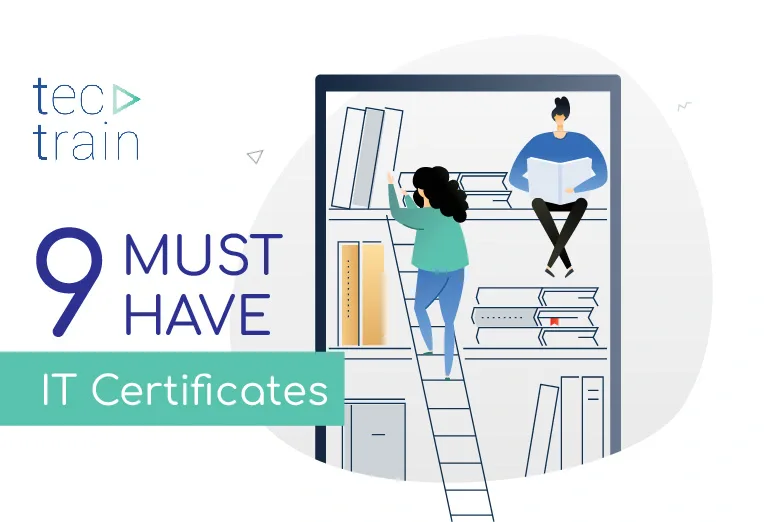
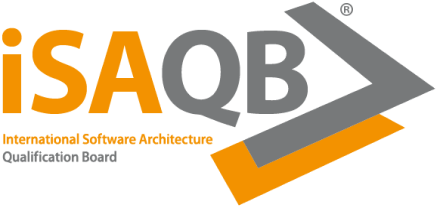
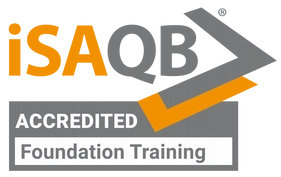
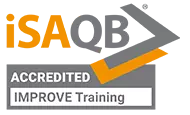
.webp)
